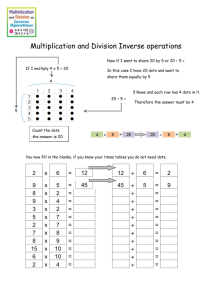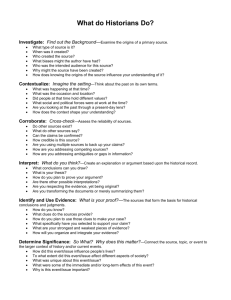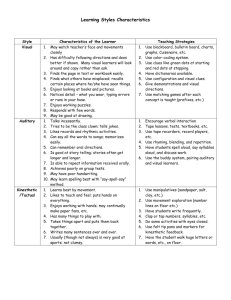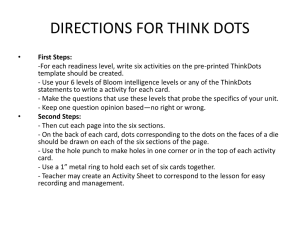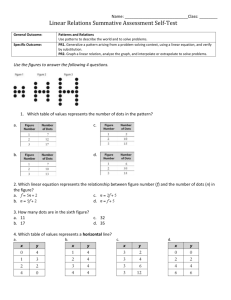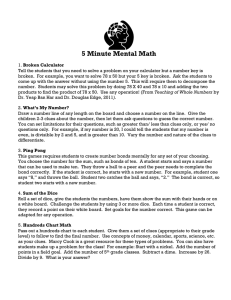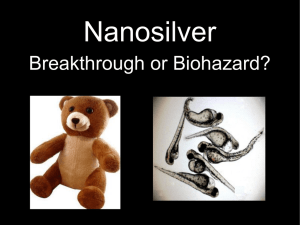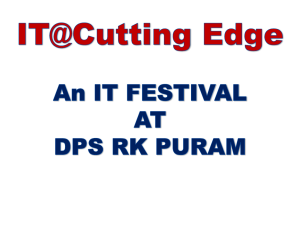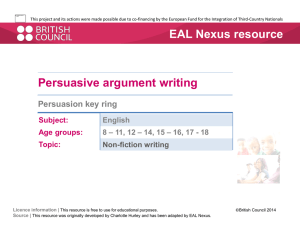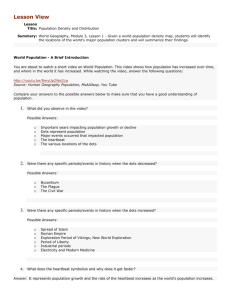Think
advertisement
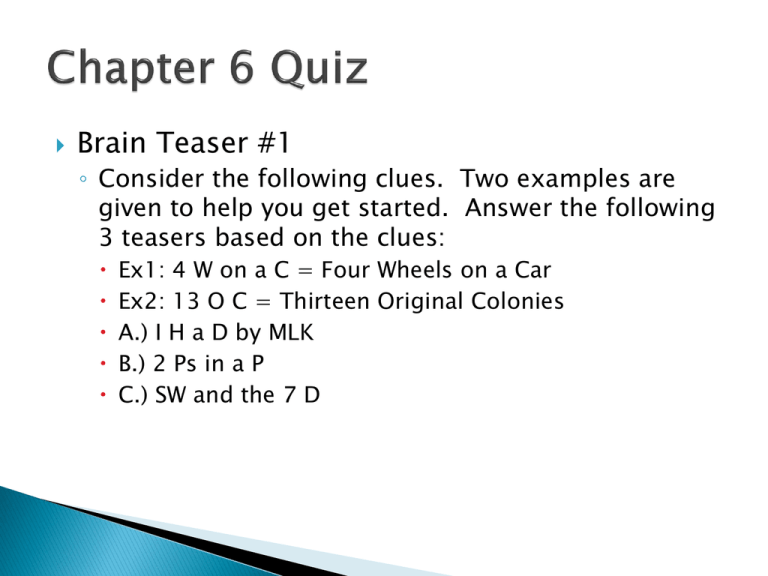
Brain Teaser #1 ◦ Consider the following clues. Two examples are given to help you get started. Answer the following 3 teasers based on the clues: Ex1: 4 W on a C = Four Wheels on a Car Ex2: 13 O C = Thirteen Original Colonies A.) I H a D by MLK B.) 2 Ps in a P C.) SW and the 7 D Brain Teaser #2 Connect the dots: Connect all nine dots with 4 straight lines without removing your pencil from the paper, do not retrace your lines: Bonus! – What is the Amygdala? Chapter Six: Think Focus on relevant issues/problems Gather key information Understand and organize thoughts and facts Analyze problems and causes Mange priorities and develop plans Assist in problem-solving skills Help you control your emotional reactions Produce new knowledge Help you determine the accuracy of information Assist you in detecting bias and persuasion in argument STEP ONE: Understanding and Using Emotional Intelligence STEP TWO: Looking at Things Differently STEP THREE: Managing Information and Becoming Information Literate STEP FOUR: Asking Questions and Tolerating Uncertainty STEP FIVE: Identifying, Defining, Narrowing, and Solving Problems STEP SIX: Distinguishing Fact and Opinion STEP SEVEN: Seeking Truth in Arguments and Persuasion STEP EIGHT: Thinking Creatively and being Resourceful Part of the brain’s emotional system Protects us when we are afraid or upset Feelings before thought “Fight or flight?” based on previous experience “Fear is the path to the dark side. Fear leads to anger. Anger leads to hate. Hate leads to suffering.” Look at: ◦ ◦ ◦ ◦ ◦ Common issues with uncommon eyes Known problems with new skepticism Everyday conflicts with probing curiosity Daily challenges with attention to detail Clues and patterns Question #1 I H a D by MLK I Had a Dream by Martin Luther King 2 Ps in a P Two Peas in a Pod SW and the 7 D Snow White and the 7 Dwarves Question 2 - Connect the dots: Connect all nine dots with 4 straight lines without removing your pencil from the paper, do not retrace your lines: 1. 2. 3. 4. 5. Determine what information you need Establish where to find information and how much is needed Evaluate the reliability and accuracy of the information gathered Decide how to best use this information Determine how to document your sources clearly and precisely 3 Types of Questions: 1. Questions of Fact – “What time does class start?” 2. Questions of Preference – “Would you like fries with that?” 3. Questions of Judgment – “Should we eliminate the speed limit on major highways?” Uncertainty causes humanity to move forward and create new knowledge, to keep asking questions and seeking truth, to let go and accept we will not know all the answers immediately A fact can be proven (objectively verified) An opinion has no objective proof To distinguish fact v. opinion: ◦ Take nothing for granted ◦ Consider who is making the assertion ◦ Listen for what is not said Ad baculum – Persuasion based on force. Ad hominem – Personal Attack, slander. Ad populum – Argument based on majority. Ad verecundiam – Quotes people in authority. Bandwagon – Peer pressure. Scare tactic – If you/we don’t, something bad will happen. Straw argument – Going on the offensive to discount other arguments. Appeal to tradition – “It’s the way we always do it.” Plain folks – “We’re just alike, you should agree with me.” Patriotism – Ignore logic for what is right for your country. Glittering generalities – Appeal to popular generalizations “Truth, Justice, and the American Way!” Aspect of critical thinking Producing something that is uniquely yours Requires internal resourcefulness Characteristics: compassion, courage, truth, dreams, risk-taking, innovation, competition, individuality, curiosity, perseverance Use credible, reliable sources Learn to distinguish fact from opinion Be flexible and avoid generalizations Use emotional intelligence and restraint Avoid stereotyping and prejudice and strive for objectivity Reserve judgment Do not assume – do the legwork and ask questions Distinguish symptoms from problems Journals Due ◦ A Modest Proposal… Guest Speaker – John Robertson – Career Services (Student Employment) First Event Write Up due Sept 29th (Next Wednesday) Questions?
